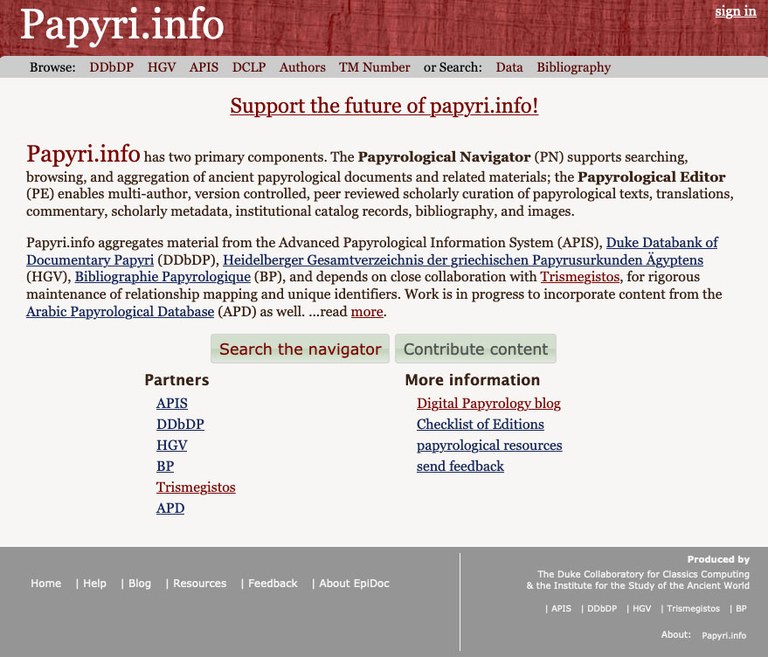Papyri.info

- 2005-
- Duke Collaboratory for Classics Computing (DC3)
Papyrology is the discipline devoted to the study of some of the most ancient documents that have been preserved from the Ancient Mediterranean. Papyri available today are written for the most part in Greek but also in numerous other ancient languages, such as Demotic Egyptian, Latin, Coptic, Hebrew and Arabic. Although the bulk of the material comes from Egypt, papyri have been found in smaller quantities also in other countries of the Near East. Papyri provide us with the most complete set of documentation on any ancient civilization of the remote past. Through them, we gain precise knowledge of the daily life, administration, legal and social structures of Greco-Roman Egypt over a whole millennium, from the time of Alexander the Great until the Arab conquest. Through papyri we also encounter numerous literary texts, from a pagan or Christian background, that were not transmitted to the Middle Ages and the Renaissance.
papyri.info is a data repository and publication platform that delivers the original texts of all papyri published to date together with related research data drawn from a number of resources in Germany (the Heidelberger Gesamtverzeichnis), Belgium (Trismegistos, the Leuven Database of Ancient Books, and the Bibliographie Papyrologique), and the United States (the Advanced Papyrological Information System). The contents are for the most part documentary papyri, pertaining to the daily life of the inhabitants of Egypt over a full millennium. Literary and sub-literary texts preserved on papyrus are currently being added via the joint German-American initiative, the Digital Corpus of Literary Papyri.
A wide array of functions enables scholars to search the corpus for specific information. Translations and metadata are also provided, such as dates, provenance, information on available images.
Papyri.info aggregates material from the Advanced Papyrological Information System (APIS), Duke Databank of Documentary Papyri (DDbDP), Heidelberger Gesamtverzeichnis der griechischen Papyrusurkunden Ägyptens (HGV), Bibliographie Papyrologique (BP), and depends on close collaboration with Trismegistos, for rigorous maintenance of relationship mapping and unique identifiers.